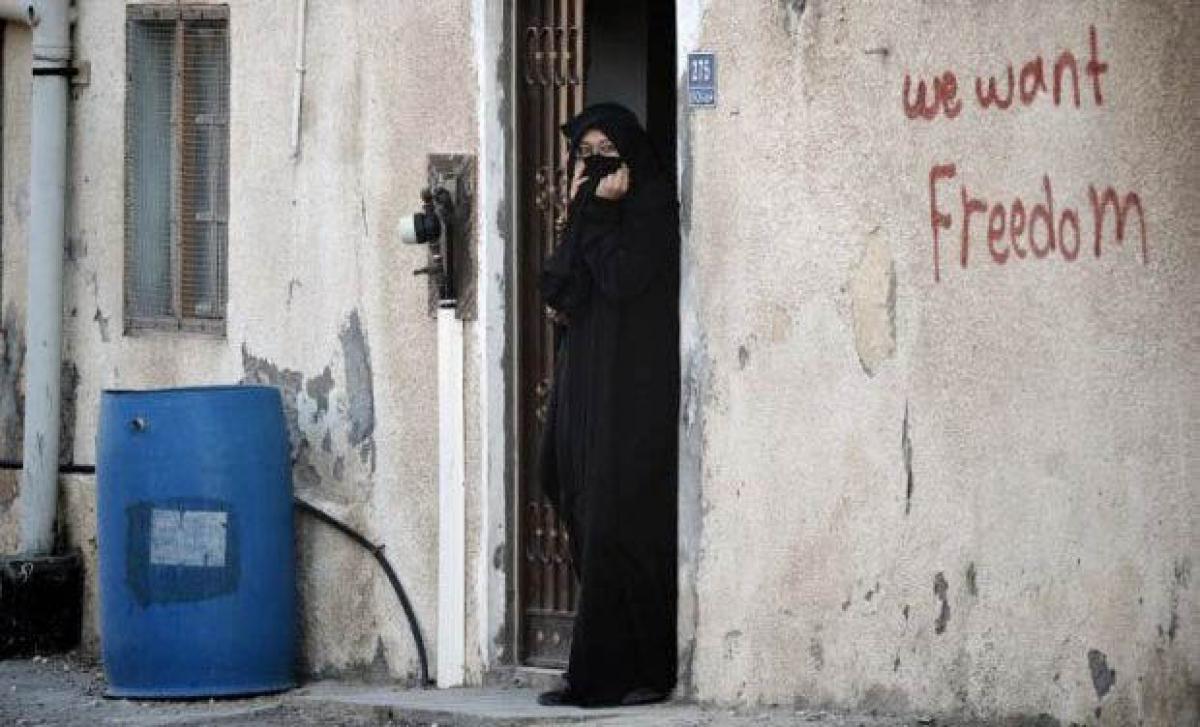Live
- Chanchalguda Jail Officials Say They Haven't Received Bail Papers Yet, Allu Arjun May Stay in Jail Tonight
- BJP leaders present evidence of illegal voters in Delhi, urge EC for swift action
- Exams will not be cancelled: BPSC chairman
- Nagesh Trophy: Karnataka, T.N win in Group A; Bihar, Rajasthan triumph in Group B
- YS Jagan condemns the arrest of Allu Arjun
- Economic and digital corridors to maritime connectivity, India and Italy building vision for future, says Italian Ambassador
- SMAT 2024: Patidar's heroics guide Madhya Pradesh to final after 13 years
- CCPA issues notices to 17 entities for violating direct selling rules
- Mamata expresses satisfaction over speedy conviction in minor girl rape-murder case
- Transparent Survey Process for Indiramma Housing Scheme Directed by District Collector
Just In

x
Highlights
Prime Minister Stephen Harper sought to win over the key French-Canadian vote in an election debate on Thursday with a firm defence of a popular niqab ban that split his rivals.
Prime Minister Stephen Harper sought to win over the key French-Canadian vote in an election debate on Thursday with a firm defence of a popular niqab ban that split his rivals.

With only four weeks left before October 19 legislative elections, a woman's right to wear the veil, which covers all of her face except the eyes, has become a hot-button issue.
A Conservative government policy, introduced in 2011, prohibited wearing such a veil during citizenship ceremonies. But last week, a court struck down the ban.
Harper has appealed the decision to the country's supreme court, and said that, if re-elected, his Tories would make it the law.
"When we join the Canadian family we should not hide our identity and that's the reason we believe that new citizens should recite the oath with their face uncovered," he said.
A poll taken in March as debate over the matter reached a fever pitch showed 82 per cent of Canadians supported the ban. In the predominantly French-speaking province of Quebec, that number climbed to 93 per cent.
Thomas Mulcair, leader of the New Democratic Party, which lead in recent public opinion polls in Quebec, has come out in favor of a woman's right to wear whatever she wants.
In the context of a citizenship ceremony, however, he said he would still require a woman to remove her veil to prove her identity.
The Liberals, led by Justin Trudeau, have also pitched the importance of upholding individual rights in Canada's multicultural society.
"If a man can't tell a woman how to dress, we should not have the state telling a woman what she shouldn't wear," Trudeau said.
During the debate, Harper maintained that the niqab is anti-woman.
Turning to Mulcair, he said: "I will never say to my daughter that a woman has to cover her face because she's a woman."
Although less than a few thousand women across Canada wear the veil, the niqab evokes powerful emotions, mixing individual rights, religion, women's issues and culture.
The separatist Bloc Quebecois has said it would go as far as suspending certain constitutional rights in order to stop any woman from wearing the veil in Canada.
Its leader Gilles Duceppe said the garment represents the "repression of women."
Both Mulcair and Green Party leader Elizabeth May, however, downplayed the issue, calling it a red herring.
Mulcair accused Harper of "trying to hide his government's economic record behind the niqab."
"What is the impact of the niqab on the economy? What is the impact of the niqab on climate change? What is the impact of the niqab for the unemployed?" said May.
"It's a false debate meant to distract Canadians and avoid debate on real challenges for Canada," she said.
Toronto-area resident Zunera Ishaq, who argued successfully that the ban violated her religious freedoms under Canada’s rights charter, brought the court battle at the center of the controversy.
Originally from Pakistan, Ishaq arrived in Canada in 2008 and passed her citizenship test in 2013. But she refused to participate in the oath-reciting ceremony because she did not want to do it with her face uncovered.
Ekos polling released on Thursday showed the Tories' anti-niqab position had helped swing the party back into the lead in the election with 35.4 per cent support nationwide, while the New Democrats fell from first to third place, behind the Liberals.
In Quebec, where 78 out of 338 seats in parliament are up for grabs, the New Democrats lost eight points in recent weeks, dropping to 38 per cent, a Leger poll found.
During the debate the party leaders also sparred over assisted dying, climate change, oil and gas pipelines, security, Syrian refugees, unemployment and Quebec independence.
The New Democrats swept Quebec in the 2011 ballot, which helped propel the party for the first time into the role of official opposition and a stone's throw from power.
The Conservatives are not expected gain seats in Quebec this round despite a bump in support.
But any votes the Liberals or Bloc grab from the New Democrats in Quebec help the overall Tory campaign, and Harper appeared content during much of the mash-up to let his rivals attack each other.

Next Story
More Stories
ADVERTISEMENT
© 2024 Hyderabad Media House Limited/The Hans India. All rights reserved. Powered by hocalwire.com







